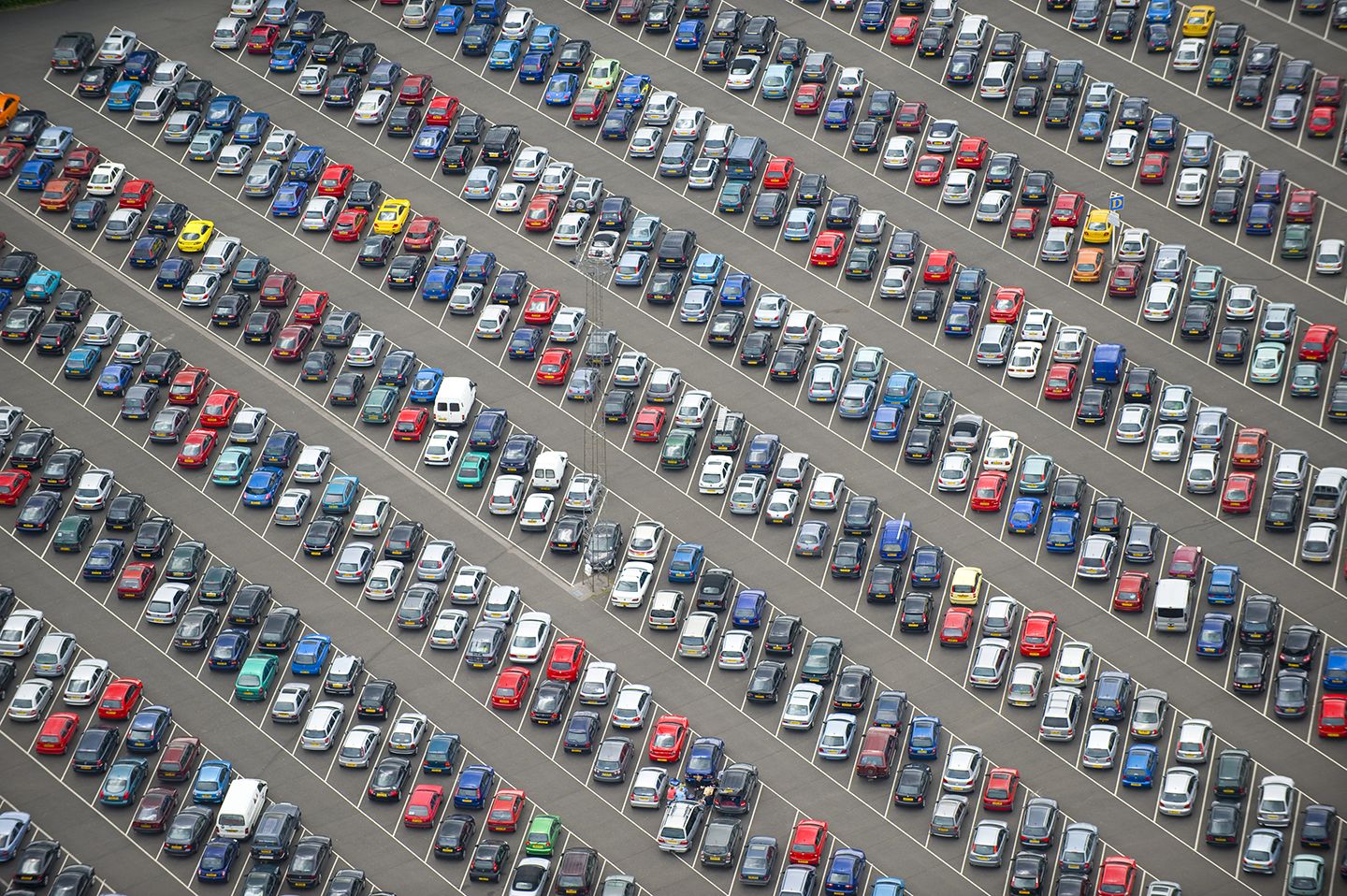
The United States is a nation of car owners. Ninety-five percent of households own a car, and 85 percent of people get to work in one. This lifestyle contributes to congestion on our roads and takes a big toll on the environment. As autonomous vehicles begin to hit the streets over the next decade or so, conventional wisdom says that all this will change. Driverless cars will zip along efficiently without delays due to accidents, gridlock and rubbernecking.
This future is not assured, however. To realize the full potential benefits of driverless cars, we will have to act soon to encourage a culture in which transportation is shared.
Consider what would happen if car ownership patterns don't change at all, if most people wind up owning their own driverless car, the same way most drivers now own their own conventional car. The typical rider would only be able to afford one vehicle—and if the past is any guide, it would be a big one. We know from current behavior that people tend to buy automobiles to handle biggest hauls—the occasional trip to Home Depot or camping with the kids—even if they make up only a small portion of trips.
Privately owned autonomous vehicles may introduce new inefficiencies. Imagine how people might use them to commute. Why pay exorbitant parking fees downtown if you can have your car drop you off in the morning, drive back home to your garage and return at the end of the day to pick you up? In this case, a two-leg trip to work and back becomes four—two single-occupant trips and two zero-occupant trips. That would make traffic congestion worse.
Even if most people eschew car ownership, we will suffer many of the same inefficiencies if they insist on riding alone. Single-occupancy AV services would create nearly the same number of trips as privately-owned vehicles; some research indicates that they may even create more miles traveled, as vehicles search far and wide for the next passenger or wait around for the next paid trip. When cars start making passenger-less trips to deliver groceries and pizza and services, vehicle-miles traveled may increase drastically.
Autonomous vehicles will most likely decrease the number and severity of crashes, allow cars to travel more closely together and improve cooperation between vehicles, all of which tends to reduce congestion and increase capacity. Nobody knows whether these positive effects would overcome the negative effects of private ownership and single occupancy, but we wouldn't bet on it. We need a new paradigm of shared usage, in which each mile a car travels serves multiple purposes as well as ensuring that the movement of people receives priority.
Many people in the automobile industry assume that driverless vehicles will automatically be shared, but there is little evidence that this is true. Vehicle manufacturers currently have no incentive to encourage shared usage of vehicles. Most estimates suggest that driverless cars will eventually be only slightly more expensive than conventional cars, which means they'll be within reach of many consumers. And users have little incentive to demand services that provide shared rides.
If most people are going to buy-in to a shared-ride culture, they need to get a significant benefit. Saving a few dollars off the fare isn't likely to move the needle significantly. Only about 20 percent of trips on Uber and Lyft are on their shared-ride services UberPool and LyftLine. A better benefit would be knowing that you're going to reach your destination more quickly.
The way to guarantee quick passage is to redesign our roads to give priority to collective transportation modes—shared ride AVs and transit—building high-occupancy lanes and priority corridors for ride-sharing AVs and transit. Transportation services and infrastructure providers will have to prioritize vehicles that are no bigger than necessary for immediate transportation needs. They'll also have to vary the cost of travel, especially at peak hours, based on how efficiently a vehicle uses the roads. AVs carrying multiple people should get higher priority than those carrying one or none at all.
Decision-makers at the local, state and federal levels must push for incentives that encourage the most efficient use of our limited roadway infrastructure. The autonomous future is rapidly approaching; it is critical that we act now, while the impacts of autonomous vehicles on congestion, inefficiencies, and emissions are still largely within our control.
Kari Watkins is an assistant professor at the School of Civil and Environmental Engineering at the Georgia Institute of Technology. Michael Hunter is an associate professor.
Uncommon Knowledge
Newsweek is committed to challenging conventional wisdom and finding connections in the search for common ground.
Newsweek is committed to challenging conventional wisdom and finding connections in the search for common ground.
About the writer
To read how Newsweek uses AI as a newsroom tool, Click here.








